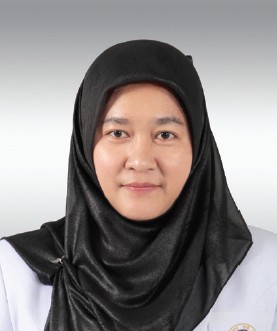Preliminary Study of Effects of Diet Control Program using FoodExchange on Knowledge, Food Consumption Behaviors, andGlycemic Control among Persons with Type 2 Diabetes
Main Article Content
Abstract
OBJECTIVE: This quasi-experimental research aimed to examine the effects of a dietcontrol program using food exchange on knowledge, food consumption behaviors,glycemic control and nutrient intake among persons with type 2 diabetes in sub-districthealth promoting hospitals.
MATERIALS AND METHODS: The sample of 44 persons with type 2 diabetes weredivided by purposive sampling into two groups, experimental (n=22) and comparison(n=22). The experimental group participated in a 12-week diet control program usingfood exchange based on the Health Belief Model concept. The program consisted ofone education session for two hours using a video, a food exchange pamphlet, a platemodel to enhance subjects’ understanding, meal planning, and three home visit followups.Data were collected via four instruments: a demographic data questionnaire, healthinformation records, a food consumption behavior of persons with diabetes questionnaire,a knowledge test and 24 hours food record. The data was analyzed through descriptivestatistics, Wilcoxson Signed Rank test and Mann-Whitney U test.
RESULTS: After receiving the program, the experimental group had a significantlyhigher food consumption behavior score when compared to before the program (p=0.005)and scored significantly higher than the comparison group (p <0.001). Hemoglobin A1c(HbA1c) levels of the experimental group showed a significant reduction in more thanthe control group (p=0.002) whereas in knowledge score and in fasting blood sugar(FBS) there was no significant difference.
CONCLUSION: It is recommended that nurses can use this program to effectivelymodify type 2 diabetic patients’ health behavior in diet control leading to glycemiccontrol.
Article Details

This work is licensed under a Creative Commons Attribution-NonCommercial-NoDerivatives 4.0 International License.
This is an open access article distributed under the terms of the Creative Commons Attribution Licence, which permits unrestricted use, distribution, and reproduction in any medium, provided the original work is properly cited.
References
2. Aekplakorn W, editor. Report of the Fourth Thai National Health Examination Survey 2008-2009. Nonthaburi: the Graphico system publisher; 2010.
3. Danaei G, Lawes CM, Vander Hoorn S, et al. Global and regional mortality from ischaemic heart disease and stroke attributable to higher-than-optimum blood glucose concentration: comparative risk assessment. Lancet 2006;368:1651-9.
4. American Diabetes Association. Standard of medical care in diabetes-2012. Diabetes Care 2012;35:S11-36.
5. Norris SL, Zhang X, Avenell A, et al. Long-term effectiveness of lifestyle and behavioral weight loss interventions in adults with type 2 diabetes: a meta-analysis. Am J Med 2004;117(10):762-74.
6. Schellenberg ES, Dryden DM, Vandermeer B, et al. Lifestyle interventions for patients with and at risk for type 2 diabetes: a systematic review and meta-analysis. Ann Intern Med 2013;159(8):543-51.
7. American Diabetes Association. Nutrition recommendations and interventions for diabetes. Diabetes Core 2008;31 (suppl 1):S61-S78.
8. Kongsomboonvej S. Diet for diabetes therapy. Bangkok: Saikit publisher. 2008.
9. Kriengsinyos W. Nutrition and diabetes. Bangkok: Sarakadee. 2008.
10. Geil PB. Choose your food: exchange lists for diabetes: the revision of exchange lists for meal planning. Diabetes spectrum 2008; 21:281-3.
11. Fuangfung S, Kaveevivitchai C, Peasue N. Effects of diet control program using food exchange on knowledge, health behaviors, and blood glucose levels among persons with type 2 diabetes in District Health Promoting Hospitals. J Public Health Nurs 2015; 29(3):34-49.
12. Chonsin P, Kaveevivitchai C, Neelapaichit N, et al. Impact of a Blood Pressure Regulating Programme on Health Beliefs, Health Behaviour, Amount of Sodium Intake and Hypertension Levels in Community Members with Hypertension. Thai J Nurs Counsil 2016; 31(4): 63-75.
13. Lim HM, Park JE, Cho YJ, et al. Individualized diabetes nutrition education improves compliance with diet prescription. Nutr Res Pract 2009;3(4):315-22.
14. Watanabe M, Yamaoka K, Yokotsuka M, et al. Randomized Controlled Trial of a New Dietary Education Program to Prevent Type 2 Diabetes in a High-Risk Group of Japanese Male Workers. Diabetes Care 2003;26(12):3209-4.
15. Becker MH. The Health Belief Model and personal health behavior. Health Education Monographs 1974; 2:232-508.
16. Bureau of Policy and Strategy, Office of the Permanent Strategy, Ministry of Public Health (MoPH). Public health statistics: Hospitalization rate in diabetes. Nontaburi: Bureau of Policy and Strategy, MoPH. 2015.
17. Cohen J. Statistical power analysis for the behavioral science (2nd ed.). Hillsdale, NJ: Lawrence Erlbaum Associates. 1988.
18. The Potential Development of Thai People Project. Food exchange. Bangkok: Faculty of Medicine Ramathibodi Hospital, Mahidol University. 2009.
19. Peasue N, Rittising S, Sirichakawan P, et al. Manual on ready-to-eat dishes. Bangkok: Jodthong. 2009.
20. Institute of Nutrition, Mahidol University. INMUCAL-Nutrients V3 NB2.1 Program. Nakhonpratom; 2015.


